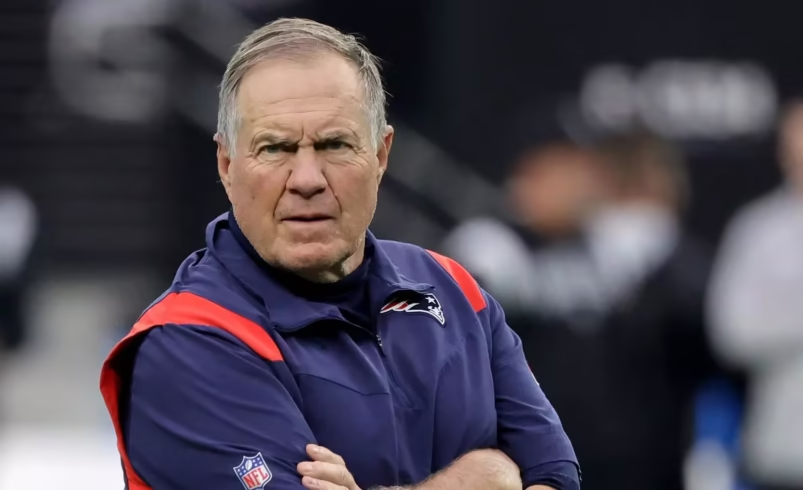Bill Belichick’s strong response to UNC scouting ban sparks debate
- September 14, 2025
- 0

Bill Belichick has never been one to mince words, and his latest comments have once again placed him at the center of a heated football debate. After the University of North Carolina barred New England Patriots scouts from attending its practices, Belichick issued a swift and uncompromising response. He announced that representatives from UNC would no longer be welcome at the Patriots’ facilities, framing the decision as a matter of mutual respect and fairness between college programs and NFL teams. The exchange has quickly grown beyond a simple disagreement, raising larger questions about access, reciprocity, and the delicate relationship between college football programs and professional franchises.
The controversy began when UNC decided to restrict New England’s scouting staff from observing its practices. While details surrounding the university’s reasoning were not elaborated upon in Belichick’s remarks, the move was seen as unusual in the broader landscape of college-to-NFL cooperation. For decades, professional teams have relied on open access to evaluate potential draft prospects, making such restrictions rare and noteworthy.
In typical fashion, Belichick did not sugarcoat his reaction. He made it clear that if UNC chose to block his scouts, then he would reciprocate by denying their representatives entry into Patriots facilities. His explanation was straightforward: respect should run both ways. By framing his decision as “pretty simple,” he underscored his belief that fairness is fundamental in maintaining healthy ties between colleges and NFL organizations.
This standoff has sparked broader discussion across both college and professional football circles. Scouting access is considered vital for NFL teams preparing for future drafts, while colleges often benefit from maintaining strong ties with professional organizations that showcase their athletes at the next level. A breakdown in cooperation could set a precedent that influences how other schools or franchises approach similar situations in the future.
What began as a localized dispute has now evolved into a national talking point within football communities. Coaches, analysts, and fans alike are weighing in on whether Belichick’s stance was justified or whether it risks escalating tensions unnecessarily. The issue highlights how even seemingly small decisions about access can ripple outward into larger debates about fairness, transparency, and long-term relationships between institutions at different levels of the sport.
At its core, this conflict underscores an age-old principle: relationships thrive when both sides operate with mutual respect. By drawing a firm line, Belichick emphasized that professional teams should not be expected to extend privileges without receiving them in return. Whether this approach strengthens or strains future collaborations remains to be seen, but it has undeniably brought attention to an often-overlooked aspect of football operations—scouting access policies.
In conclusion, Bill Belichick’s blunt response to UNC’s ban on Patriots scouts has transformed a regional dispute into a national conversation about fairness in football relations. His decision to bar UNC representatives from New England facilities highlights the importance of reciprocity between colleges and NFL teams—a principle that could shape future interactions across the sport for years to come.